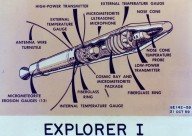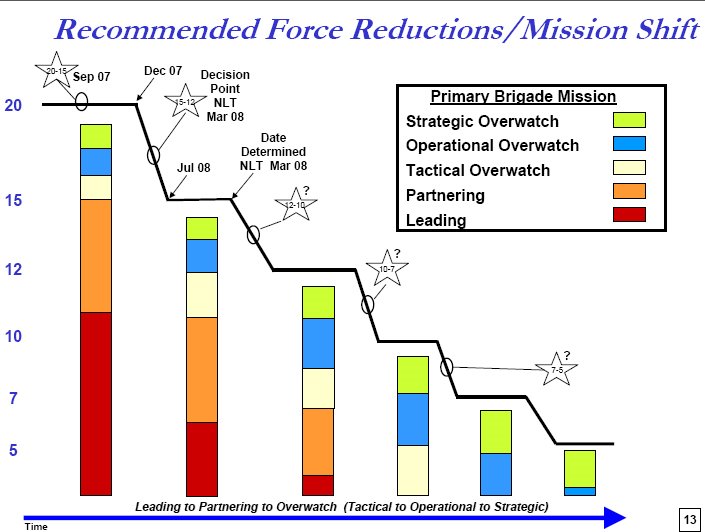On the
Counterterrorism Blog Madeleine Gruen and Frank Hyland have released their second installment on the homegrown terrorism threat in the U.S.
They are clear on the criteria used for the threats. The terrorist group must have "the presence, the level of intention, and the capability to carry out its threat." Although a number of groups would like to carry out acts they are not able thus they are ranked lower as a result.
Al-Qa’ida (AQ) is on the top of a list such as this and thereafter each threat is ranked from the most likely to least likely.
The Groups:
1. Al-Qa’ida & Al-Qa’ida-Inspired Individuals or Groups:
An unnamed group or individual then is at the top of the list. The authors are playing the numbers. With the size of our population and the relative unhindered legal and illegal access to weapons and explosives, along with out course our continuing unpopular policies here and abroad, "the odds are high that someone will see coverage of an incident abroad - Iraq, Afghanistan, Israel - and react." The exact nature and timing of such a threat is virtually impossible to predict. "The perpetrators are not necessarily members of a network, often do not know each other, and therefore leave no `tracks' to follow from one to the other." The organization of AQ consists of groups, cells, and individuals that act independently.
The two World Trade Center attacks were by people who received training in terrorist camps; currently however, Westerners have attended AQ training camps in Pakistan and/or Afghanistan. Moreover, the UK attacks were "AQ-inspired native-born men who carried out the attacks on London commuters in July 2005."
At a subsequent point the authors promise to consider "US-based groups that have no clear-cut physical ties to AQ, but that abide by the same ideological doctrines as AQ and which are unabashed supporters of AQ, such as As-Sabiqun."
The second rank consists of White Nationalist Groups who have carried out attacks but they have "been relatively disorganized. . . lacked funding, and its adherents have not been as ideologically committed as they have been committed to a social network and cults of personality." For these reasons, I believe this places them at a significantly distant second to AQ.
The authors then rank the Lebanese Hizballah (LH) at number three but they continue to outline the group's major strengths. In this regard, I believe they are in fact more dangerous than the White Nationalist Groups. For example, the authors contend that the group have access to weapons, explosives, have the motivation, and the requisite skills in order to carry out a successful attack here. Hizballah meets all of these criteria. In addition, they maintain that LH has "undoubtedly carried out the pre-attack surveillance necessary not only to carry out at least one attack, but to do it in short order after receiving the `Go' from their masters in Tehran and Beirut. Members of the group have insinuated themselves into many of the major metropolitan areas of the US." They are entreched in criminal activities already such as cigarette smuggling thus they have the tactical and monetary resources for an attack. LH has already hit Buenos Aires.
Palestinian Islamic Jihad (PIJ) places fourth mostly because for decades they have had an infrastructure presence in the U.S. PIJ leader Fathi Shqaqi was assassinated in 1995 when University of South Florida Computer Engineering Professor Ramadan Shallah immediately left Florida, journeyed to the Middle East and assumed the chairmanship of PIJ. They are here.
The fifth place finisher, HAMAS, has been successful elsewhere in politics whereas in the U.S. they have been involved in lengthy legal proceedings against their fund-raising arm--The Holy Land Foundation for Relief and Development--at one time the leading Islamic charity in the U.S. I have no doubt they could strike but I believe they are significantly less of a threat than the higher ranked groups.
Hizb ut-Tahrir (HT) is a political Islamist organization that is present in the U.S. HT has not been directly linked to a terrorist attack but its published ideological doctrine and strategy are identical to AQ’s. We have to live with this group I believe, until, or unless they break the law. The group does not even use the HT name in the U.S. so they may be difficult to even identify.
Muslim Brotherhood (MB) is arguably the most influential of all Islamist groups but the authors have not identified the group with violence in the U.S. thus they must simply bear watching.
The eighth and final grouping, the USA General Store, is a catchall for groups such as the Tamil Tigers, or the Revolutionary Armed Forces of Colombia (FARC) who exploit or extort funds from American contacts.
Most of the analysis seems to hinge on the weaknesses inherent in the security posture of the U.S. In the same way that key Counterterrorism expert Steven Emerson writes, the threat is non-specific, unnamed, and general enough that little can be done except act in defense, or in reaction to a violent act or acts. Given the constitutional constraints on legal action, and the paucity of actual, physical attacks, the groups remain little more than named threats. The threat is very real, lethal, and places Americans in the uncomfortable and unfamiliar role of facing domestic threats. I would predict that little will be done until or unless said groups or individuals actually act. Although our security posture has undoubtedly improved since 9/11 we are by no means safe. Hence, the frustrating position for Americans to watch and wait.
 Graphic source: CNN
Graphic source: CNN












